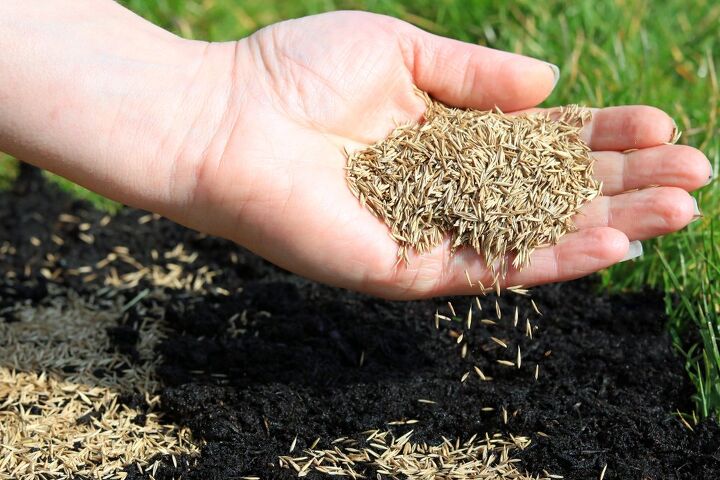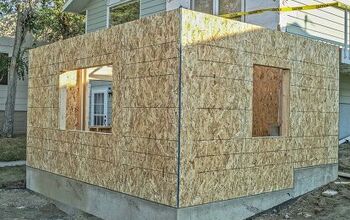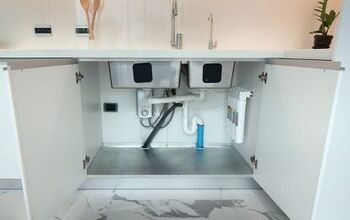Will Grass Seed Germinate On Top Of Soil?

A lush lawn is a huge part of how you and others will perceive your home. Planting and nourishing grass takes a lot of work before you can enjoy a beautiful, green lawn. So, will grass seed germinate on top of soil?
Grass seeds are unlikely to germinate on top of soil because they aren’t covered. You need to cover grass seeds with ¼” of soil so that they can sprout and take root in the soil. It can take between 10 and 30 days for grass seeds to germinate with regular watering and nitrogen-infused fertilizer.
Try not to plant your grass seeds too close together because it will lead to dense patches. Water your grass seeds every day so that they will germinate and sprout quickly. Follow along as we explore all of the factors that determine when and how grass seeds will germinate.
Can You Just Put Grass Seed on Top of Soil?
You can just put grass seeds on top of the soil, but it will be difficult for them to germinate. Grass seeds can rinse or blow away if they aren’t covered. Pests and birds can also eat the grass seeds rendering them completely useless if they are on top of the soil.
Cover your grass seeds with ¼” of soil to protect them so that they will germinate. Loose grass seeds on top of the soil can still make their way into the ground, but it is not guaranteed. Even grass seeds that are covered can still come out of place or fail to grow.
Uncovered grass seeds can also dry out or get too wet more easily than if they are covered. Prolonged air and sunlight exposure can dry grass seeds out and they won’t grow. They will also be vulnerable to rain and dew which can waterlog the seeds and they won’t always germinate.
How to Tell if Grass Seed is Germinating
Look for green sprouts to tell if grass seed is germinating. The green spouts will appear anywhere from a few days to 2 weeks after you plant the seeds. Water your grass seeds daily when they begin to sprout so that they stay healthy.
Never mow your grass if it is under 3” tall, especially if you planted it recently. The new grass won’t be strong enough to handle the force and trauma of the mower. Grass needs time for its roots to form strongly within the soil before it will be durable.
Mowing grass before it’s 3”-4” tall can tear out the roots and it won’t grow back evenly. Don’t worry if your grass doesn’t sprout within 5-10 days because that is normal. Unfortunately, some grass seeds simply won’t germinate so don’t worry if you get stuck with a dud.
How Long Does Grass Seed Take to Grow
It takes up to 2 weeks for grass seed to grow. Grass seeds can grow in as little as 10 days, depending on climate conditions. You may have to wait up to 30 days for your grass seed to grow if the soil doesn’t have enough nutrients or water.
Make sure to water the grass seeds every day so that they will grow quickly. Too much water can smother your grass seeds and make them take longer to grow. Grass seeds generally take closer to a month to grow if live somewhere with heavy rain.
Factors such as the time of year, your location, and what type of grass seed you have are all important. Some types of grass, such as Kentucky Bluegrass, are mostly ideal for eastern states. You can grow Kentucky Bluegrass on the west coast, but it may take longer than it would in its ideal climate.
What to do if Grass Seed Doesn’t Grow
Add more fertilizer to the soil if your grass seed doesn’t grow. Fertilizer contains nutrients that can help your grass seeds germinate and continue to grow. A lack of nutrients will hinder a plant’s growth and potential to stay healthy.
Read the label before you buy a particular fertilizer to make sure it’s ideal for your soil. Not all fertilizers are rich in important nutrients like nitrogen and phosphorus. Nitrogen is particularly known for stimulating plant growth, and you’ll find phosphorus in many.
Otherwise, you may simply need to check to see if your grass seeds are properly covered. Grass seeds can easily blow away when it’s dry if they are uncovered. Birds and pests can also eat your grass seeds if they aren’t covered by dirt.
What Does Too Much Grass Seed Look Like?
You can tell that there is too much grass seed if you can’t see any space between the seeds. Grass seeds need enough space between them for the grass to come in evenly. Clumps of grass seeds will grow into dense, overgrown clusters.
It is natural for homeowners to try to maximize how well their grass seeds grow to get the best results. However, planting too many grass seeds close together is more harmful than it is effective. This will result in uneven landscaping that is unattractive and can decrease your home’s curb appeal.
Failure to plant enough grass seed looks just as bad as overgrown clusters of grass. That is why it is helpful to hire a professional landscaper if you have to plant grass throughout a large yard. Otherwise, you can simply plant the grass seeds with a seed spreader and pay attention to your spacing.
What Triggers Grass Seed to Germinate?
A mixture of nutrients, sunlight, and water triggers grass seeds to germinate. Each factor is equally important because they all work in conjunction. For example, your seeds may fail to grow even if you water them if you have limited sunlight or weak soil.
Grass seeds will struggle to grow in soil that doesn’t have key nutrients like nitrogen. Fertilize the soil before you plant the grass seeds so that they start on the right foot. Plant your grass seeds in the spring or summer so that they are the most likely to receive enough sunlight and water.
Different types of grass have different requirements. Research your particular type of grass so that you can water and fertilize accordingly.
Summing it Up
Grass seed can germinate if you put it on top of the soil, but it’s unlikely. The grass seed would need to somehow make its way into the soil for it to germinate. It is difficult for grass seeds to germinate unless you cover them with ¼” of soil.
It can take up to 30 days for grass seeds to germinate depending on several factors. Your grass seeds won’t germinate quickly if you water them too much or too little. Water the seeds once each day, but be careful so you don’t get them too wet.
Grass seeds can germinate in 10 days under the right climate conditions if you take care of them. Scatter fertilizer infused with nitrogen and phosphorus in your soil if your grass seeds struggle to germinate. Carefully space out your grass seeds so they aren’t too far apart or close together for an even lawn.
Related Guides

Nick Durante is a professional writer with a primary focus on home improvement. When he is not writing about home improvement or taking on projects around the house, he likes to read and create art. He is always looking towards the newest trends in home improvement.
More by Nick Durante











![10 Best Electric Lawn Mowers - [2022 Reviews & Top Rated Models]](https://cdn-fastly.upgradedhome.com/media/2023/07/31/9070486/10-best-electric-lawn-mowers-2022-reviews-top-rated-models.jpg?size=350x220)


![10 Best Scroll Saws for 2022 [Ultimate Reviews & Buyer's Guide]](https://cdn-fastly.upgradedhome.com/media/2023/07/31/9070684/10-best-scroll-saws-for-2022-ultimate-reviews-buyer-s-guide.jpg?size=350x220)


![How To Reset A Whirlpool Cabrio Washer [In 5 Easy Steps!]](https://cdn-fastly.upgradedhome.com/media/2023/07/31/9076531/how-to-reset-a-whirlpool-cabrio-washer-in-5-easy-steps.jpg?size=350x220)








![Cost To Drill A Well [Pricing Per Foot & Cost By State]](https://cdn-fastly.upgradedhome.com/media/2023/07/31/9074980/cost-to-drill-a-well-pricing-per-foot-cost-by-state.jpg?size=350x220)
